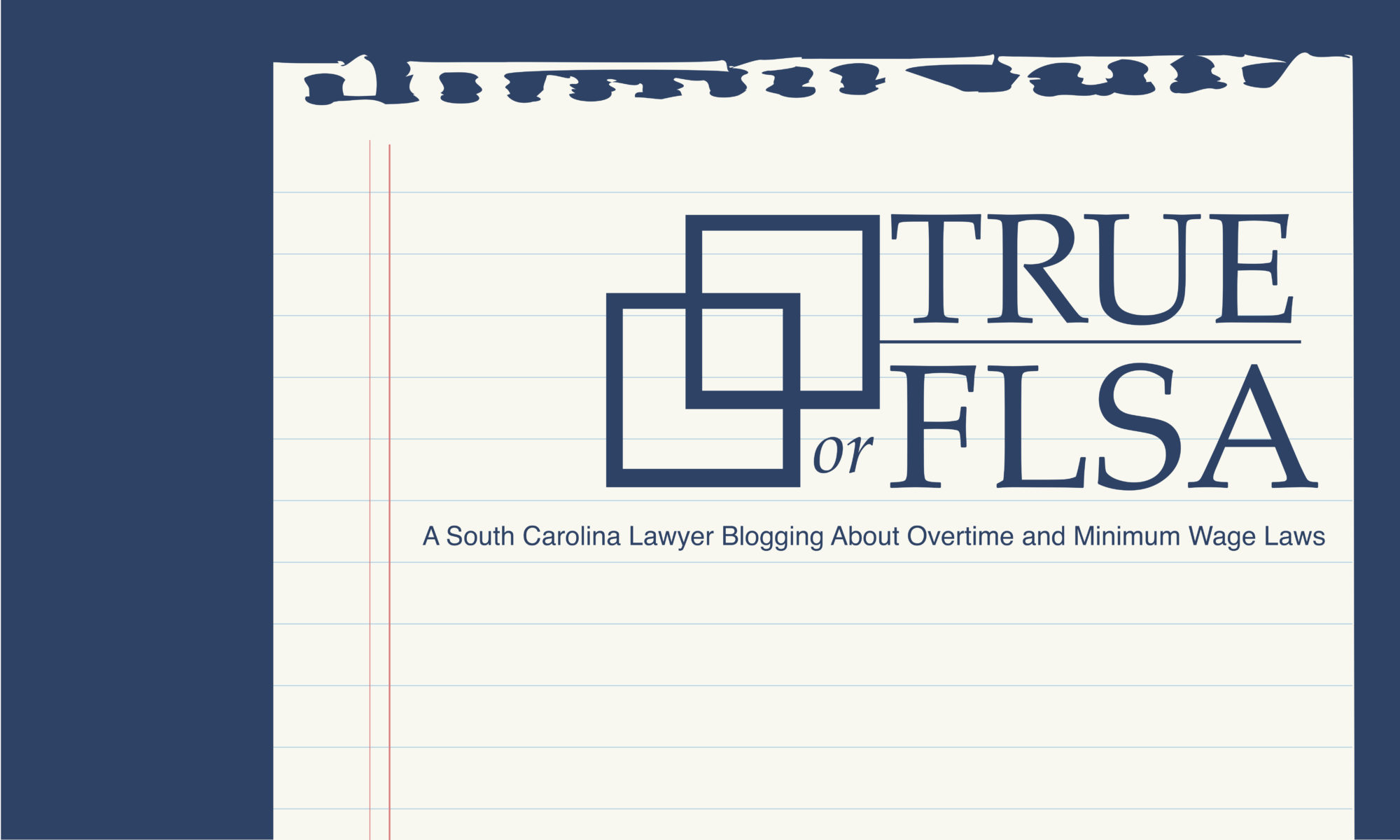I’ve prepared this page to provide an overview and summary of the overtime and minimum wage rules under the Fair Labor Standards Act in South Carolina. I hope you find it helpful. Please feel free to contact me directly if you have specific questions.
What are the overtime rates in South Carolina?
South Carolina doesn’t have a state overtime and minimum wage rule, which means that the federal Fair Labor Standards Act (FLSA) provides the only requirements for overtime and minimum wage pay in South Carolina. The federal minimum wage is currently set at $7.25 an hour for non-service/non-tipped jobs. For employees in the service industry who get paid partially in tips, the rate is $2.13 an hour, with the remainder of the required $7.25 to be made by tips.
The federal overtime rate is 1.5 x (time and a half) the regular hourly rate earned by an employee. If any employee qualifies under the FLSA for overtime pay, then the employee is entitled to time and a half for all hours worked over 40 in a given work week. So, for example, if an employee makes $10/hour and qualifies for overtime pay, then the employee would be entitled to $15/hour for any hours worked past 40 per week.
Who qualifies for overtime pay and minimum wage?
If an employee works in or handles material or goods that travel in interstate commerce (i.e., shipped over state lines), then the employee is covered by the FLSA. Interstate commerce includes handling mail and electronic communications that pass over state lines as well.
For employees who fall under the broad environs of the FLSA, they still must meet other requirements before being entitled to overtime pay. Employees are further broken down into exempt and non-exempt classifications. Exempt means that you are NOT entitled to overtime pay under the FLSA, while non-exempt means that you ARE entitled to overtime pay.
What makes an employee “exempt” from overtime pay under the overtime rules of South Carolina?
The answer to this question revolves around two criteria: (1) Does the employee get paid a salary that is at least $684 per week (called the “salary test”)? And (2), do the employee’s job duties fall under the so-called “white collar exemptions” (called the “duties test”)? An employee must meets the salary requirement AND the white collar exemption in order for the employee to be properly classified as exempt from overtime pay.
The salary test
This question is fairly straightforward: Is the employee getting paid a salary of at least $684 a week? The issue comes, however, when an employer starts making certain deductions from the employee’s wages if the employee misses a day of work. A salaried employee must still be paid his weekly wages if he or she performs any work in that workweek. If an employer makes it a practice to reduce wages for missed days, then that can potentially destroy the exemption and render the employer liable for unpaid overtime.
The duties test
The “white collar exemptions” concern the actual work activities/duties that an employee must perform in order to qualify as an exempt worker. The most common are the administrative exemption and the executive exemption.
The executive exemption requires an employee to have supervisory or management authority over at least two other employees AND have authority to hire and fire employees. If the employee lacks these duties, then the exemption doesn’t apply.
The administrative exemption requires that the employee be engaged in office or non-manual labor AND the employee’s primary duty must include the exercise of discretion and independent judgment with respect to matters of significance. Again, if the employee’s duties don’t meet these strict requirements, then the employee must be paid overtime.
What can I do if I’ve been wrongfully denied overtime pay?
If a South Carolina employee was wrongfully classified as exempt from overtime (i.e., not entitled to overtime) AND the employee worked more than 40 hours a week, then the employee can bring a lawsuit in state or federal court under applicable overtime rules. If the lawsuit is successful, the employee can recover unpaid overtime, plus the judge can award liquidated damages and can order the employer to pay the employee’s attorneys’ fees. If you believe that you’re entitled to overtime pay, then you should schedule a consult immediately to review your options.
